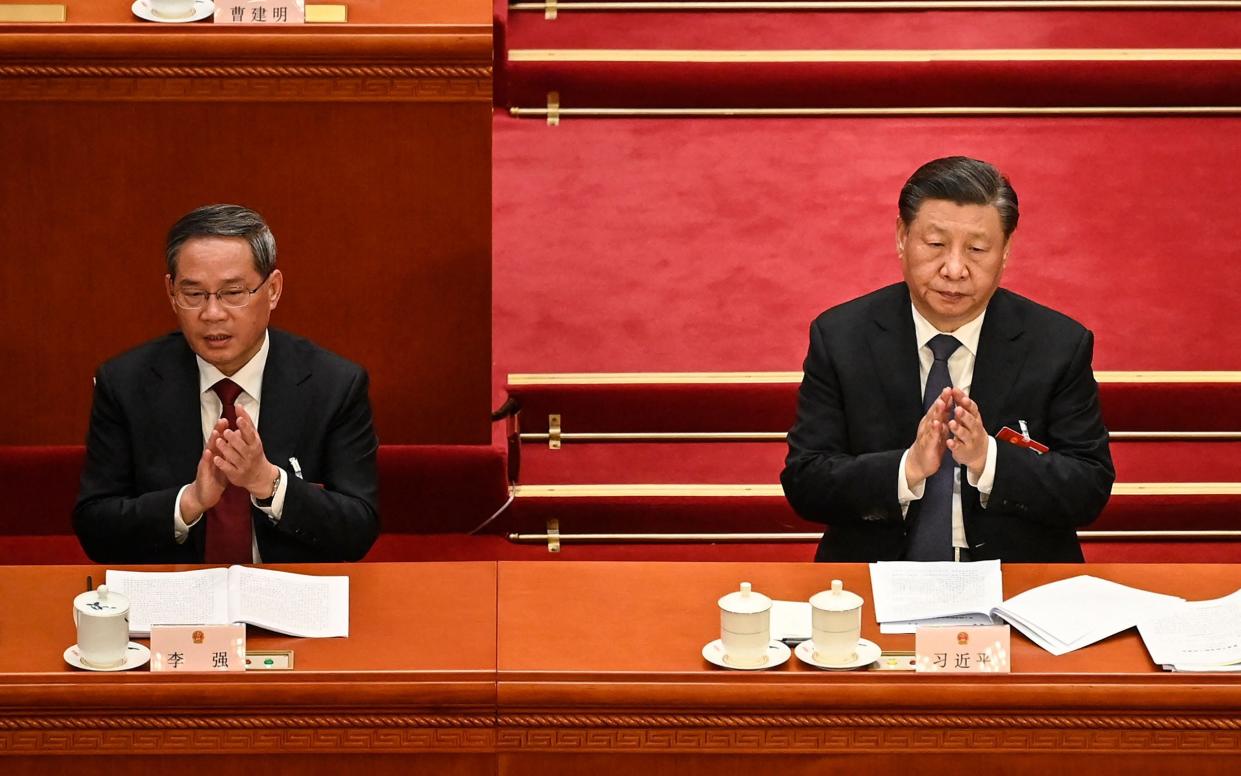Xi Jinping in rare direct attack on the US for seeking to 'suppress and contain' China

- Oops!Something went wrong.Please try again later.
Xi Jinping issued a rare, direct rebuke against the US, accusing Washington of seeking to "suppress and contain" China in remarks that echoed the Cold War.
“Western countries, led by the United States, have implemented all-round containment, encirclement and suppression against us, bringing unprecedentedly severe challenges to our country’s development," the Chinese leader said.
Mr Xi's comments directly naming the US are a departure from his often pointed references to “certain countries”.
The Chinese version of his remarks in state media differ, however, from the English translation published, which neither names the US specifically nor uses the word containment.
China's new foreign minister, Qin Gang, echoed Mr Xi’s sentiments on Tuesday, saying the US should change its "distorted” attitude towards China or “conflict and confrontation” would follow.
The Cold War-era rhetoric aligns with increasingly shrill messaging from China’s foreign ministry and state media, both of which have in recent years sought to paint the US as a bad-faith actor and to blame Washington for deteriorating bilateral relations.

Tensions between the US and China have worsened, as the two nations continue to clash on human rights, trade, technology, the war in Ukraine and the issue of Taiwan, an island nation with a democratic government that Beijing claims as its territory.
In an apparent effort to diffuse escalating tensions with China, a highly anticipated but sensitive meeting between Tsai Ing-wen, Taiwan’s president, and Kevin McCarthy, the US House Speaker, is now due to take place in the US, rather than in Taiwan, this spring, the Financial Times reported.
Ms Tsai has been invited to speak at the Ronald Reagan Presidential Library while she travels through California on a planned visit to Central America.
Last year, when Mr McCarthy’s predecessor Nancy Pelosi visited, China staged unprecedented military drills around the island. Mr Xi himself has made clear his intent to ‘re-unify’ with Taiwan, even if it means resorting to force.
Sudden entry into Taiwan
Taiwan's defence minister, Chiu Kuo-cheng, warned on Tuesday that the island must be on alert this year for a "sudden entry" into areas near its territory by the Chinese military.
The US and its allies are already carrying out contingency planning for the region — one of the world’s most dangerous flashpoints — as Washington and Beijing intensify their military and strategic competition in the Indo-Pacific region.
Mr Xi, who renewed his status as the leader of the ruling Chinese Communist Party last fall, is expected to be elected again as president this month.
Li Qiang, a Xi loyalist, is set to become the next premier, the country’s second most-powerful person, at the end of the annual meeting of China’s rubber stamp parliament, which kicked off over the weekend and typically lasts two weeks.
A Chinese parliamentary delegate has proposed that China make public a blacklist of people who try to “split” Taiwan from mainland China, allowing anyone to arrest and shoot them without being held accountable in the event of a “special operation” in the island nation.
This language that echoes how Russian president Vladimir Putin has described his invasion of Ukraine. Those doing so would even be awarded a medal of honour for ‘promoting unity.’
It’s unclear whether the proposal has much backing, though it gives a sense of where discourse is within Chinese political circles. Many delegates put forth ideas though usually what will pass has already been decided by the Communist Party’s most senior ranks.
Additional reporting by Jenny Pan

